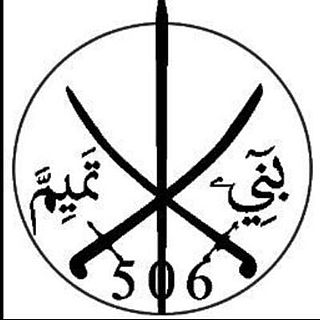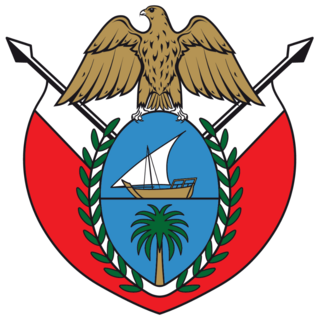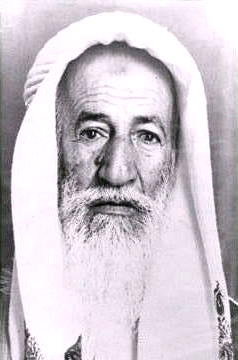
The history of Qatar spans from its first duration of human occupation to its formation as a modern state. Human occupation of Qatar dates back to 50,000 years ago, and Stone Age encampments and tools have been unearthed in the Arabian Peninsula. Mesopotamia was the first civilization to have a presence in the area during the Neolithic period, evidenced by the discovery of potsherds originating from the Ubaid period near coastal encampments.

The United Arab Emirates is a country in the eastern part of the Arabian Peninsula located on the southeastern coast of the Persian Gulf and the northwestern coast of the Gulf of Oman. The UAE consists of seven emirates and was founded on 2 December 1971 as a federation, after UK armed forces left the region. Six of the seven emirates declared their union on 2 December 1971. The seventh, Ras al Khaimah, joined the federation on 10 February 1972. The seven sheikdoms were formerly known as the Trucial States, in reference to the truce treaties established with the British in the 19th century.

The flag of the United Arab Emirates contains the Pan-Arab colors red, green, white, and black. It was designed in 1971 by Abdullah Mohammed Al Maainah, who was 19 years old at that time, and was adopted on 2 December 1971 after winning a nationwide flag design contest. The main theme of the flag's four colors is the sovereignty and unity of the Arab states.

Sheikh Rashid bin Saeed Al Maktoum was an Emirati royal, politician and a founder of the United Arab Emirates. Al Maktoum was the first vice president and second prime minister of the United Arab Emirates, and was the ruler of Dubai. He ruled Dubai for 32 years from 1958 until his death in 1990. He was the vice president from the founding of the UAE until his death. Al Maktoum was the first vice president to serve as prime minister concurrently, when he became prime minister on 30 April 1979. Every prime minister after him was de facto also vice president.

Sheikh Zayed bin Khalifa Al Nahyan, also known as Zayed the Great or Zayed the First was the Sheikh of Abu Dhabi from 1855 to his death in 1909. He was the grandfather and namesake of Sheikh Zayed bin Sultan, founder of the United Arab Emirates.

Banū Tamīm is an Arab tribe that originated in Najd in the Arabian Peninsula. It is mainly present in Saudi Arabia, Qatar, Kuwait, Iraq, Jordan and Lebanon, a strong presence in Algeria, and Morocco, Palestine, Tunisia, and Libya. It is also present in many other parts of the Arab world such as Egypt and Khuzestan in Iran. The word Tamim in Arabic means strong and solid. It can also mean those who strive for perfection.

Sheikh Saqr bin Mohammed Al Qasimi was the Ruler of the Emirate of Ras Al Khaimah from 1948 to 2010. On 10 February 1972, under his leadership, Ras Al Khaimah become the seventh Trucial State to join the United Arab Emirates.

The House of Maktoum is the ruling royal family of the Emirate of Dubai, and one of the six ruling families of the United Arab Emirates. The family is a branch of the Bani Yas clan, which is a branch of the Al Bu Falasah section of the Bani Yas, a tribal federation that was the dominant power through the region that now forms the United Arab Emirates.
This article deals with territorial disputes between states of in and around the Persian Gulf in Southwestern Asia. These states include Iran, Iraq, Kuwait, Saudi Arabia, Bahrain, Qatar, the United Arab Emirates (UAE), and Oman.
The Al Bu Shamis or Al Shawamis is an Arab Bedouin tribe that mostly inhabit the southeastern part of the Arabian peninsula. They are located mainly in Northern Oman, the United Arab Emirates, and to a lesser extent Kuwait, Qatar, eastern Saudi Arabia, Bahrain. Due to the large nature of the tribe, there are today in fact many branches that trace themselves to the Al Bu Shamis tribe.

The Al Qasimi is an Arab dynasty in the Persian Gulf that rules Sharjah and Ras Al Khaimah, today forming two of the seven emirates of the United Arab Emirates. They are one of the longest reigning royal families in the Arabian peninsula. Historically, they also ruled over the town of Lengeh as sheikhs for a century until its annexation by Iran in 1887.

The Trucial States, also known as the Trucial Coast, the Trucial Sheikhdoms, Trucial Arabia or Trucial Oman, was a group of tribal confederations to the south of the Persian Gulf whose leaders had signed protective treaties, or truces, with the United Kingdom between 1820 and 1892.

The Al Khater family is a prestigious family in the Arabian Peninsula. They belong to Al Buainain of Banu Tamim. The family expands in several Arabian Peninsula countries including Saudi Arabia, Qatar and Bahrain. The Al Khater are the ones who built two major cities in the Arabian Peninsula which are Jubail in Saudi Arabia and the former capital of Qatar, Al Wakrah.

The Qatari-Bahraini War, also known as the Qatari War of Independence, was an armed conflict that took place in 1867 and 1868 in the Persian Gulf. The conflict pitted Bahrain and Abu Dhabi against Qatar. The conflict was the most flagrant violation of the 1835 maritime truce, requiring British intervention. The two emirates agreed to a truce, mediated by the United Kingdom, which led to Britain recognizing the Al-Thani family of Qatar as the semi-independent ruler of Qatar. The conflict resulted in wide-scale destruction in both emirates.
The Fakhro family, attributing to their great-grandfather Fakher from Banu Tamim. The name Fakhroh came from their great-grandfather Fakher whose son of Tamim bin Mor bin Ad bin Murder bin Adnan which is considered as a very ancient Arab tribe dwelled by people from the midst of the Arabian Peninsula.

Haitham bin Tariq Al Said is Sultan and Prime Minister of Oman.
The Na'im is an Arab tribe in the United Arab Emirates. The tribe is also present in other gulf countries.
The AFC second round of 2022 FIFA World Cup qualification, which also served as the second round of 2023 AFC Asian Cup qualification, was played from 5 September 2019 to 15 June 2021.

The Ruler of Dubai is the position of the hereditary monarch and head of government of the Emirate of Dubai, one of the six ruling families of the UAE. The Ruler is also considered the head of the House of Maktoum, the royal family of Dubai. After the unification of the Emirate of Dubai within the United Arab Emirates, the Ruler of Dubai nominally assumes the position of Vice President and Prime Minister of the United Arab Emirates and sits at the seat reserved for Dubai at the Federal Supreme Council.













